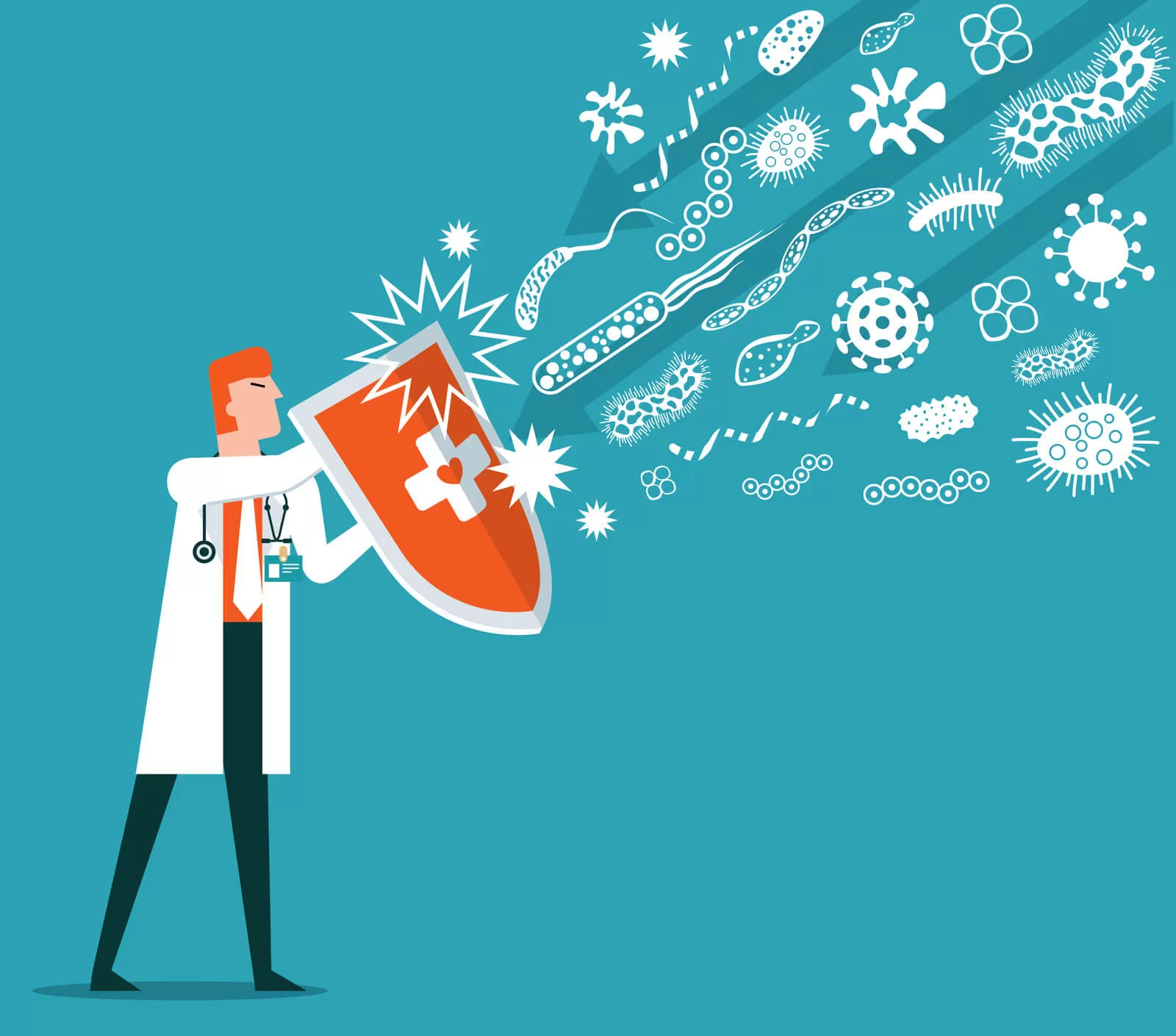
The immune system doesn’t just fight infections—it also plays a surveillance role against cancer cells.
Every day, cells in the body divide, multiply, and sometimes make mistakes in copying DNA.
Some of these errors create abnormal cells that could become cancer if left unchecked.
The immune system detects these changes through specialized cells that scan for irregular behavior.
T-cells, natural killer cells, and macrophages help recognize and eliminate early abnormalities.
This process is known as immune surveillance and happens without conscious awareness.
It acts as an internal filter, identifying threats before they become clinically visible or measurable.
But surveillance isn’t perfect—it depends on balance, efficiency, and the ability to respond quickly.
Sometimes cancer cells learn to hide from the immune system or block its detection pathways
Sometimes cancer cells learn to hide from the immune system or block its detection pathways.
They may downregulate surface markers that immune cells use to identify abnormal behavior.
Others release chemicals that confuse or paralyze nearby immune responders.
Some cancers form protective environments that limit immune entry, called immune-privileged zones.
These tactics help cancer escape early destruction and begin growing unchecked.
Over time, these cells evolve further resistance, adapting to evade both therapy and detection.
This is why a strong immune system isn’t always enough—it can be outmaneuvered.
Immunity alone doesn’t guarantee protection from every form of cellular mutation.
Immune function is shaped by genetics, lifestyle, stress levels, and age-related decline
Immune function is shaped by genetics, lifestyle, stress levels, and age-related decline.
Some people inherit more responsive immune systems due to specific gene combinations.
Others face reduced immunity from poor sleep, malnutrition, or chronic exposure to toxins.
High stress over time weakens immune defenses, lowering resistance to abnormal cell growth.
As people age, their immune response naturally slows, creating more vulnerability to cancer.
Even healthy individuals face decline in T-cell activity and immune memory.
This means cancer risk rises with age, regardless of lifestyle improvements.
Immune strength is not fixed—it can change dramatically over a lifetime.
Immune-boosting habits may help reduce cancer risk by improving cellular detection and response
Immune-boosting habits may help reduce cancer risk by improving cellular detection and response.
Regular physical activity promotes circulation and immune cell movement throughout the body.
Nutrient-dense diets support cellular repair, antioxidant activity, and anti-inflammatory responses.
Vitamin D, zinc, and selenium contribute to immune regulation and oxidative stress control.
Sleep restores immune cell function and allows better reaction to internal signals.
Limiting alcohol and avoiding tobacco reduces toxins that strain immune function.
These habits do not guarantee protection, but they build resilience over time.
Health routines shape how your immune system functions under pressure.
Chronic inflammation creates conditions that weaken immune detection and promote tumor development
Chronic inflammation creates conditions that weaken immune detection and promote tumor development.
Long-term inflammation exposes tissues to constant repair signals, which can lead to DNA damage.
Inflamed areas attract immune cells, but also release growth factors that support abnormal cells.
This environment may confuse the immune system and allow precancerous cells to multiply.
Conditions like inflammatory bowel disease or hepatitis carry higher cancer risks for this reason.
Autoimmune disorders may also create unpredictable immune patterns that affect cancer surveillance.
Controlling inflammation helps reduce these risks and restores immune clarity.
Inflammation isn’t always visible—but its long-term effects often are.
Some modern cancer therapies are designed to reactivate the immune system’s dormant response
Some modern cancer therapies are designed to reactivate the immune system’s dormant response.
Checkpoint inhibitors help remove the brakes from immune cells, allowing them to attack tumors.
CAR T-cell therapy reprograms a patient’s own immune cells to recognize and destroy cancer targets.
These therapies rely on the immune system’s original ability to detect abnormality.
They succeed by restoring lost recognition, not creating new defense mechanisms.
Success rates vary by cancer type, but some have shown remarkable remission in resistant cases.
Side effects often involve overactivation, causing inflammation or autoimmune-like reactions.
These treatments prove that immunity can fight cancer—with guidance and reinforcement.
The microbiome also plays a role in shaping immune behavior toward cancer
The microbiome also plays a role in shaping immune behavior toward cancer.
Gut bacteria influence inflammation, metabolism, and immune system tone.
Dysbiosis, or imbalance in microbial populations, can trigger immune confusion or suppression.
Certain gut bacteria are linked to stronger responses to immunotherapy in clinical studies.
Diet, antibiotics, and illness can all shift the microbiome, altering immune readiness.
Research continues into how restoring microbial balance might improve cancer prevention.
Understanding this connection could lead to personalized probiotic or dietary therapies.
Microbiome health is deeply connected to immune regulation and cancer outcomes.
Detecting early cancer still depends on routine screening alongside immune health
Detecting early cancer still depends on routine screening alongside immune health.
Mammograms, colonoscopies, Pap smears, and blood tests remain essential tools.
Even strong immune systems can miss fast-growing or particularly evasive tumors.
Screening catches changes before symptoms develop, allowing earlier and more effective treatment.
Immunity complements but doesn’t replace early detection strategies.
Both must work together to give the best chance for long-term control.
Personal vigilance and clinical support form the full picture of cancer prevention.
Prevention is layered—not singular.
A strong immune system lowers cancer risk but doesn’t eliminate it entirely
A strong immune system lowers cancer risk but doesn’t eliminate it entirely.
Mutations still happen, even in healthy people living balanced lives.
Cancer arises from multiple causes, and not all are under personal control.
Environmental exposures, random DNA errors, or inherited mutations may still lead to malignancy.
Immunity reduces the chance of progression—but doesn’t block every possibility.
Understanding this nuance avoids blame when cancer occurs.
It also highlights the value of combining prevention, lifestyle, and early action.
Strength is helpful—but it’s not invincible.
